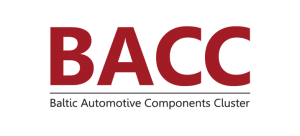This month, thousands of school-leavers will take their examinations and apply to institutions of higher education and other educational institutions. Are we again going to see large numbers applying for specialities with the lowest demand in the job market? Are we again going to have a situation where youth starts out on its career and business talks about the lack of specialists, and neither youth nor business hears each other? And after all, what specialities should school-leavers choose, so that their future prospects would be clear and the job market would make them offers even before they complete their studies?
One of the fastest-growing sectors with the most hunger for new employees in Lithuania today is the automotive components industry. Participants in the automotive sector in Lithuania were growing and making positive forecasts even when other sectors were slowing down or declining. Just in 2022 alone, automotive sector companies in Lithuania created more than 2,000 jobs, and they intend to maintain this tempo both this year and next year. Members are looking for hundreds of people with the skills and abilities needed to work in the automotive sector in Lithuania, but are encountering a critical lack of specialists. The further development of the automotive industry today depends on finding specialists in engineering, automation, robotics and mechatronics. Despite the fact that state-funded seats at educational institutions have been strategically allocated to these specialities for years, the available seats in study programmes have not been filled.
We are rapidly advancing into Industry 4.0
Because Lithuania is quickly catching up to other economically strong countries in Europe, for some time now manufacturers have not seen Lithuania as a cheap-labour location. To remain competitive, automotive industry companies have been investing in robotics, automation and other productivity-enhancing measures. But the skilled personnel able to turn these intentions and visions into reality is in short supply.
Industry especially lacks qualified specialists able to supervise the work of robots, or to create and adapt modern automation solutions, artificial intelligence and electronic sensors. There are such specialists, and they will only become even more essential as Lithuania’s industry grows and develops.
Autonomous driving technologies
Lithuania, and especially the Kaunas region, is becoming a centre for autonomous driving technologies. Automotive electronics manufacturers located in Kaunas, including Continental, Hella and Littelfuse, make the most advanced radar systems enabling autonomous driving functions in the latest vehicles. The companies have announced optimistic plans for future development, but even today they are encountering problems with finding enough specialists. It is forecast that if the development plans were realised, the demand for engineers in the job market would exceed supply by 4 to 5 times.
Companies most lack process engineers, quality engineers, test engineers and maintenance engineers. This kind of work can usually be done by specialists who have completed studies in automotive engineering, electronics engineering or industrial engineering. Companies also have a difficult time finding embedded systems programmers. The demand for the specialists listed here is so great that today it is quite common for students studying in these programmes to receive their first job offers while they are still in their third or even second year of study.
But what can school-leavers do if they can’t study or don’t want to study in a university?
The automotive and other manufacturing sectors are experiencing a critical shortage of qualified technicians. A person who has completed mechatronics, electronic equipment or similar training can work as a technician. Without qualified technicians, no large manufacturer of automotive components can achieve its plans for growth because it will lack the specialists needed to supervise the production process. Companies usually have dozens of open positions for these specialists, and that situation will not change in the next several years.
The members of the Baltic Automotive Components Cluster enthusiastically invite and encourage young people to visit and see for themselves the automotive sector. It is only by ourselves contributing to growing and developing young talent that we will create the proper ecosystem and ensure the sustainable development of our companies, so I call on other companies to join these initiatives.
*****
Give this message to the pupils around you. So that young people could choose wisely and strategically, with an eye on the future – to grow in those sectors where the country’s economy is growing, where in just a few short years today’s school-leavers will become active participants.



